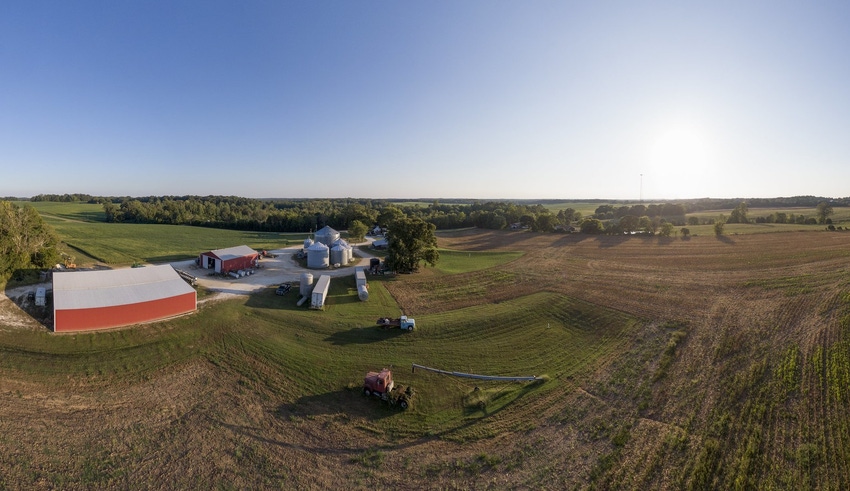House Republicans want answers on Chinese-owned farmland and Senate bill bans foreign individuals from receiving Farm Credit System loans.

According to USDA, at the beginning of 2021 foreign investors held a stake in approximately 37.6 million acres of U.S. agricultural land, which is drawing new attention from members of Congress. “This trend is expected to increase over the next few years, raising concerns about the negative potential implications it will have on domestic food production and national food security,” according to a recent letter from House legislators.
A total of 50 House Republicans sent a letter to U.S. Department of Defense Secretary Austin Lloyd, U.S. Department of Treasury Secretary Janet Yellen, and U.S. Department of Agriculture Secretary Tom Vilsack raising concerns over the recent acquisition of farmland near a U.S. military installation by a Chinese-based manufacturer with close links to the Chinese Communist Party.
The letter comes after a recent land acquisition near Grand Forks, North Dakota, by the Fufeng Group, a Chinese-based manufacturer with close links to the CCP. The area houses the Grand Forks Air Force Base, which is a military installation incredibly important for intelligence, surveillance and reconnaissance capabilities. The move raises concerns about the CCP’s ability to conduct espionage operations on U.S. military installations and jeopardize U.S. strategic interests, the legislators state.
“At a time when the United States is engaged in great power competition with China, we must utilize every tool at our disposal to protect and defend the integrity of our military and national security, maintain military dominance, and maximize our global military readiness,” the lawmakers wrote.
The growing trend of foreign land ownership, coupled with USDA's absence from permanent membership on the Committee on Foreign Investment in the United States, is concerning, as the department should have some jurisdiction over the review of agricultural land acquisitions that raise national security concerns, the House legislators add.
Farm credit limits on foreign landowners
On the Senate side, Sen. Chuck Grassley, R-Iowa, a member of the Senate Agriculture Committee and lifelong family farmer, and Sen. Sherrod Brown, D-Ohio, a member of the Agriculture Committee and chairman of the Banking and Housing Committee, introduced a new bill that would prevent foreign individuals from obtaining credit and financial services through the Farm Credit System. Currently, certain foreign individuals and entities are eligible to receive credit through this government-sponsored enterprise.
Since 1997, Farm Credit Administration regulations have allowed FCS associations to extend credit to certain foreign nationals who are not permanent residents of the United States and to foreign-owned entities. Grassley and Brown’s bipartisan Farm Credit for Americans Act would make foreign individuals and entities, as defined by the Agricultural Foreign Investment Disclosure Act, ineligible for financing through the FCS.
“The expansion of foreign-owned farmland is a justified cause for concern among many family farmers and ranchers. It poses a potential threat to our domestic food supply, and by extension, to our national security. Building on my previous efforts to get a better handle on foreign-owned farmland, our bill will ensure no foreign investors can use loans from a government-sponsored entity to buy up valuable acres. This is a commonsense step to ensure foreign buyers, like those backed by China, aren’t taking prime land away from American family farmers with help from the U.S. government,” Grassley says.
Grassley was the original author of the Agriculture Foreign Investment Disclosure Act, which requires foreign nationals to report their U.S. agricultural holdings to USDA. Alongside Sen. Tammy Baldwin, D-Wis., Grassley recently introduced the Farmland Security Act to increase scrutiny over foreign investments in American agricultural land. Last year, Grassley also introduced the Food Security is National Security Act to give top U.S. agriculture and food officials permanent representation on CFIUS.
“We created the Farm Credit System to ensure farmers and agriculture workers in Ohio and across the country have access to affordable credit – not to benefit foreign investors and hostile governments,” adds Brown. “Foreign governments, especially China, have bought up prime farmland across this country at an alarming rate for decades. This will put in place a clear standard: American taxpayer dollars should not be used as a financing tool for foreign governments to undermine our national security and take our family farms.”
FCS was established in 1916 to provide credit to rural areas when commercial lenders were avoiding farm loans. It is mandated and limited by statute to serve agriculture. In 2021, FCS had a portfolio of roughly $210 billion in farm loans.
About the Author(s)
You May Also Like




.png?width=300&auto=webp&quality=80&disable=upscale)
